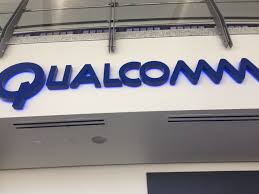Ford’s former CEO Mark Fields and Comcast’s Vice Chairman Neil Smit join Qualcomm’s board of directors
Qualcomm has appointed two new directors to its board of directors: former president and CEO of Ford Motor Company, Mark Fields, and Kornelis (Neil) Smit, vice chairman of Comcast.
The men join Qualcomm’s board as the company works to capitalize on a broader set of industries, such as automotive, the internet of things, networking and mobile compute, said Qualcomm’s press announcement. The board also has been through a period of upheaval this year, with board seats targeted by Broadcom at Qualcomm’s March meeting as part of its attempted hostile takeover of the company that was ultimately quashed by the Trump administration; meanwhile, Paul E. Jacobs was ousted as executive chairman of the board (he now has a new start-up company), then his board seat eliminated due to his announced intention to attempt to take the company private. The overall number of seats on the board went from 11 to 10.
Both Fields and Smit have valuable executive experience in areas Qualcomm wants to expand.

Fields was Ford Motor Company’s president and CEO from 2014 to 2017 and was COO from 2012 to 2014. He joined Ford in 1989 and held a number of positions within the company, culminating with CEO, where he oversaw Ford’s fastest global manufacturing expansion in 50 years, according to Qualcomm’s press release.

Smit is a vice chairman of Comcast Corporation, working to develop future Comcast’s technology-oriented business opportunities. He served as CEO of Comcast for seven years, stepping down in April 2017. Previously he was president and CEO of Charter Communications and served as president of Time Warner’s America Online Access business. He was also a Navy Seal, served on active duty with the Navy SEAL Teams and retired from the service as a lieutenant commander.
Qualcomm is still waiting to see if the final regulatory holdout — China’s Ministry of Commerce — will approve its acquisition of NXP Semiconductor, the world’s largest developer of chips for automobiles. Both companies are pawns in the current trade disputes between the U.S. and China, with their deal effectively being held hostage.
Qualcomm continues to work Chinese companies on innovating for the smartphone market, such as its work with Chinese company Vivo to fit 5G antennas into smartphones.

